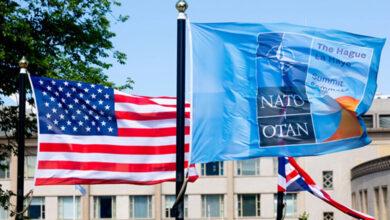Elections and referendum in Moldova: the euro was saved by the diaspora

The presidential election in Moldova was dramatic, with Russian interference, opposition party influence, bomb threats and other twists and turns. Along with the election of the president, Moldovans had the opportunity to vote in a plebiscite that would determine the future trajectory of the country.
Following the announcement of the preliminary results, none of the candidates received a majority of votes in the first round, so in accordance with the law, a second round of elections will be organised, in which the first two candidates who received the most votes will take part. It is already clear that these will be Maia Sandu (42.33% of the vote) and Alexandru Stoianoglo (26.05% of the vote). The second round is expected to be very difficult.
The European elections were saved by the diaspora
By an unconvincing majority, Moldova chose the European path to the future. According to the Central Election Commission, after 99.41% of the 1.4 million votes in the EU referendum were counted, 50.39% voted ‘yes’ against 49.61% who voted ‘no’. It seemed that the ‘no’ vote would have the upper hand until the last few thousand votes from the large diaspora were counted. A defeat would have been a political disaster for the pro-Western government, which had actively supported the pro-European campaign.

Christian Cantir, an adjunct professor of international relations at the University of Auckland, told the Associated Press that previous polls may have ‘overestimated the pro-European sentiment’ in Moldova, and that the referendum would not have taken place without voting outside the country. ‘Now this will create additional problems as it will become a source of narratives promoted by the Kremlin and pro-Russian forces,’ he added. The meaning of such narratives is quite obvious: Moldovans living in Romania, Germany and other European countries are in favour of European integration, while local Moldovans are not ready for a European integration course.
Maia Sandu’s election strategy: a course towards the EU
As you know, in 2023, President Maia Sandu announced her intention to run for a second term. She also announced the launch of an online platform aimed at promoting the referendum and popularising the benefits of the country’s accession to the EU. Observers note that Sandu has sought to focus her efforts on European integration since the beginning of the campaign, an area in which she and her PAS party have made notable progress to secure her re-election.
On 21 March 2024, the parliament unanimously approved a resolution by 54 votes, signalling the continuation of efforts to join the European Union. The document stated: ‘Only joining Europe can guarantee the country’s future as a sovereign, neutral and fully democratic state.’ During the vote, all opposition parties demonstratively left the parliamentary hall. On 16 May, the parliament approved the decision to hold the referendum simultaneously with the 20 October presidential election.
Influences and obstacles from the pro-Russian opposition
In a live broadcast on FREEDOM TV channel, Alexandru Flenca, Deputy Prime Minister for Reintegration of the Republic of Moldova (2019-2020) and director of the Association Initiative for Peace, said that the turnout in Chisinau and Balti, Moldova’s second largest city, was extremely high. This is indeed unprecedented, as usually the turnout in large cities, especially Chisinau and Balti, has always been the lowest. Obviously, there was a mobilisation of voters. Alexandru Flenca told a Ukrainian TV channel that Maia Sandu was the favourite in the presidential race. No one had any doubts about her victory or her passage to the second round. This is also evidenced by the fact that two of the most promising opposition leaders, former President Igor Dodon and Chisinau Mayor Ion Ceban, refused to participate in the presidential campaign. Clearly, all bets are off for next year’s parliamentary elections. Moldova is a parliamentary republic, and parliamentary elections are arguably even more important than presidential ones.
A referendum on enshrining the European integration vector in the Constitution of Moldova has been held. At the same time, the difference in the number of voters who participated in the plebiscite and in the elections indicates some success of the opposition. Some opposition parties called for a boycott of the referendum, while others called for voting against it. At least those who called for ignoring the plebiscite and not casting ballots were somewhat successful. Openly pro-Russian parties called for a no vote.
President Maia Sandu also spoke about the influence of hostile forces on the election and referendum results after about 90% of the votes had been counted: ‘Criminal groups acting in concert with foreign forces hostile to our national interests have attacked our country with tens of millions of euros, lies and propaganda, using the most reprehensible means to keep our citizens and our nation in captivity to uncertainty and instability.’
‘We have clear evidence that these criminal groups planned to buy 300,000 votes – a fraud of unprecedented proportions,’ Sandu added. ‘Their goal was to undermine the democratic process.”
The vote came amid allegations by Moldovan authorities that Moscow’s ‘hybrid war’ is intensifying, with the aim of destabilising the country and disrupting its European integration. The accusations include funding pro-Moscow opposition groups, spreading disinformation and interfering in local elections.
The European Commission has also confirmed the facts of Russian interference in Moldova and declared its support for the country on its way to the EU. ‘These elections were held under unprecedented pressure from Russia and its proxies, which threatens the democratic process in the Republic of Moldova,’ said spokesman Peter Stano.
On the trail of FSB agents
An analysis published by the German newspaperTagesspiegelhighlights the Chisinau government’s achievements in implementing the reforms necessary for EU accession, but notes that ‘the country remains divided and vulnerable to disinformation and Russian attacks,’ especially ahead of next year’s parliamentary elections.
The German business dailyHandelsblattinvestigated the activities of Russian FSB secret service agents in Moldova, noting that Russia is expanding its influence in Moldova and Georgia to stir up anti-Western sentiment. Analysts have noted an increased presence of Russian officials and FSB agents in Chisinau, especially during pro-Russian party rallies. These individuals often had ties to the Russian embassy, which underscores the potential threat to Germany as well.
Criticism and challenges for Maia Sandu
Even on election day, Maia Sandu faced criticism for combining the presidential election with the EU referendum. Pro-Russian parties boycotted the referendum, considering it illegal. Former President Igor Dodon said that the decision on joining the EU should be made after the completion of negotiations.
In Moscow, long queues formed in front of the Moldovan embassy to vote, but the Moldovan Foreign Ministry called it a staged event. There were also complaints about the reduction of polling stations in Russia and the lack of ballots.
Many candidates have expressed dissatisfaction with Sandu’s policies, including her fight against corruption and her rejection of Russian gas, which has led to higher energy prices. Sandu depends on a parliamentary majority to implement reforms, but the power struggle could intensify in next summer’s parliamentary elections.
Statement from the IRI observation mission
The International Republican Institute (IRI ) Election Observation Mission has issued its preliminary statement on the presidential election and referendum in Moldova on 20 October 2024.
Russian interference. There was significant foreign interference, including vote buying, propaganda, cyberattacks and provocations, especially targeting the elections in the Ialoveni district.
Increased voter turnout. This time, more than 1.5 million Moldovans voted, a 10% increase compared to 2020. Polling stations were well staffed, with notable gender equality in leadership positions.
Transparency and oversight.
Active participation of citizens and international observers ensured a high level of transparency in many polling stations.
High efficiency of the CEC. The CEC successfully increased the number of polling stations abroad, introduced postal voting and maintained polling stations for Moldovan citizens living in Transnistria, despite security concerns.





